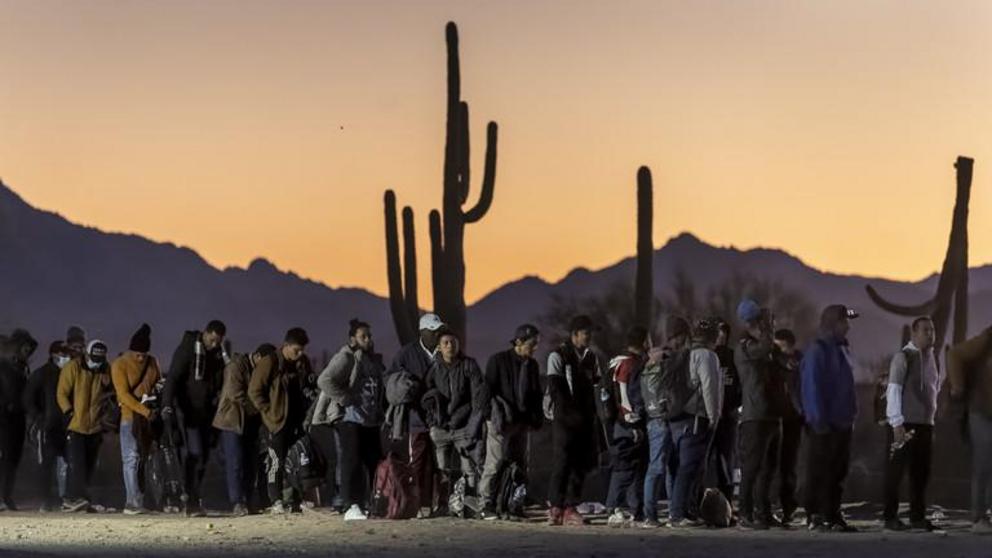The great American offload: Did the US just find a new place to send its problems?
African experts warn that deals to accept deportees from the US could compromise principles of state sovereignty

FILE PHOTO. © John Moore/Getty Images
On January 20, 2025, US President Donald Trump signed an executive order paving the way for the deportation of those he described as illegal immigrants. While signing it, he said he was protecting the American people against invasion.
In the months that followed, US authorities placed dozens of immigrants on their deportation list, with the Migration Policy Institute reporting that the number of immigration arrests rose significantly. But there was a catch: some countries were not willing to receive back citizens who had fallen victim to Trump’s deportation spree. Trump had to find a way to dispose of the deportees, and Africa came to his mind.
President Trump then approached a section of African leaders for bilateral agreements on receiving the deportees. This has erupted into controversy, with the African Union denouncing these arrangements as a policy that risks turning the continent into a “dumping zone” for arbitrary expulsions.
READ MORE: African Union slams US deportation deals. Why?
“Burden of an American problem”
Livingstone Sewanyana, Executive Director of the Foundation for Human Rights Initiative (FHRI) based in Kampala, Uganda, argues that by accepting deportees labelled by the Trump administration as “illegal immigrants,” African leaders are not only allowing their countries to become a dumping ground, but also trading away a piece of their sovereign identity.
“Some of the people being deported are dangerous criminals, while some are innocent citizens with limited legal recourse. It is wrong for African countries to bear the burden of an American problem,” Sewanyana told RT.
Sewanyana argues that African leaders must be bold and refuse to receive deportees rejected by their home nations.
“If some countries have refused to receive back their own citizens being deported, then America must keep them instead of transferring the problem to Africa,” he said.
“Sovereignty of African nations being coerced”
Ghana, Rwanda, South Sudan and Eswatini are known to have already received such deportees, while Uganda has agreed to a deal with the US to take a certain number of deportees. Kenya is reportedly considering the deal, while Nigeria has refused to accept deportees and has accused Washington of using visa restrictions and tariff hikes to pressure African countries into accepting migrants, including “some straight out of prisons.”
Dr. Ronald Kalyango Sebba, a lecturer and migration expert at Makerere University in Uganda, told RT that African countries agreeing to receive deportees from the US who are not their citizens are doing so “to earn goodwill and favours from the Trump administration.”
Kalyango notes that Trump’s use of “third-country” deportations is “not only illegal but also demeans the status of African nations receiving the deportees.”
READ MORE: Trump’s Africa pivot: Leverage, not generosity
“Sending people, who you have labelled as criminals, to nations that are not their home is not only a violation of their rights but also a disrespect and disregard of the sovereignty of African nations being coerced into this deal,” he told RT.
According to Josephine Wanjiru, a researcher at the Centre for Refugee Studies and Empowerment at Kenya’s Kenyatta University, by agreeing to act as a third-party resettlement zone, “African nations are merely submitting to external pressure and foreign policy demands.”
Wanjiru told RT that African nations agreeing to receive people being evicted from the US against their will become collaborators in the violation of their basic human rights.
“Some of the deportees are asylum seekers who are yet to exhaust all legal options. They are likely to face danger in the countries they are being sent. Forcibly sending people to countries where they have no ties and support violates obligations under international law,” she told RT.
Wanjiru warns that it is dangerous for African leaders to use deported illegal immigrants as bargaining chips for bilateral deals with the US at the expense of their fundamental rights.
“What we are seeing amounts to the erosion of the moral and legal foundation of international relations,” she notes.
Asking for help while killing the economy?
Dr. Boniface Muoka, Chairperson of Security, Diplomacy & Peace Studies at Kenyatta University in Nairobi, says agreeing to accept foreign nationals expelled from the US to maintain good relations with Washington and get favors and tariff offsets compromises the principle of independence of a state’s borders, justice systems, and immigration policy control.
Muoka argued that if the US wants African nations to accept deported illegal immigrants, it must also review its visa, trade, climate, and migration polices in favor of the continent.
READ MORE: Under pressure: How US tariffs could make this BRICS nation stronger
“You cannot expect Africa to help you sort out your immigration problem on one hand, while killing its economy through punitive trade policies,” he told RT.
At the same time, Muoka wants African nations receiving the deportees to guarantee them strict protections, including the right to access legal counsel and protection from any form of abuse.
“African leaders must be keen not to trade their national and personal integrity for short-lived conditional cooperation. As a continent, we must jealously guard the long moral arc of justice by refusing to be part of rights violations,” Muoka said.
The statements, views and opinions expressed in this column are solely those of the author and do not necessarily represent those of RT.
